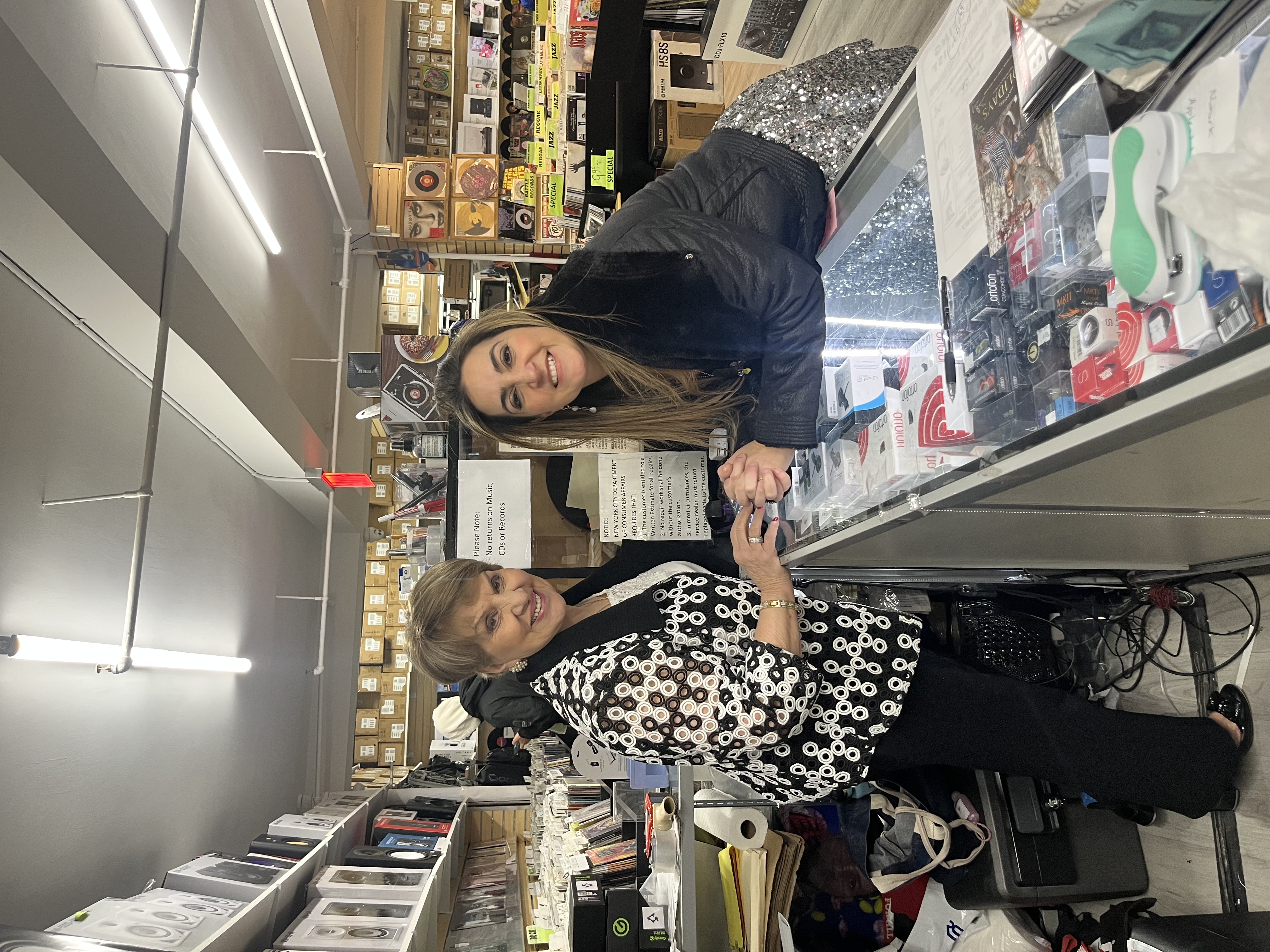
Island Music Co.'s Keith Grasso
In 2014, when Fender announced it would start selling direct-to-consumer from it’s website, retailers across the country braced for other major MI manufacturers to follow suit. Seven years later, the vast majority of suppliers are still selling exclusively through their dealer base. But following the June grand opening of Gibson Garage, Gibson’s 8,000-square-foot retail showroom in Nashville, Tennessee, which stocks the full line of Gibson brands, the thought of suppliers selling direct is back on retailers’ minds.
“I think manufacturers selling direct is becoming a dangerous trend in our industry,” said Keith Grasso, owner of Island Music Co. in La Plata, Maryland, also a Fender dealer. “It devalues the manufacturer-dealer relationship, and while it may appear impressive to the consumer, at a quick glance, it narrows the consumer’s options to try multiple branded products in one place under the guidance of a highly trained sales associate.”
When Gibson Garage opened a few months ago in Walter Carter’s backyard, the owner of Nashville-based retailer Carter Vintage Guitars wasn’t surprised.
“Gibson has had several retail stores in Nashville before, and they’ve been selling direct for some years now,” he said. “Two years ago they authorized a new dealer just down the street from us, so the appearance of yet another Gibson store a half-mile away is not as threatening as it might have been in earlier times.”
James “JC” Curleigh, CEO of Gibson Brands, said it wasn’t a question of if the guitar stalwart should open a retail location, but when and how, likening the opening of Gibson Garage to Nike and Apple retail stores, which create a “brand experience.”
“We have an obligation to create a fan base for Gibson, for Epiphone, for KRK, for Mesa/Boogie and Kramer,” Curleigh said. “That’s an obligation as a brand and business leader to create a fan base. And if you, as a retailer can focus on your competitive advantage and understand what that is and how we can service that for you, let’s partner together. And I would say this. [After] having worked in sports, fashion and now music, tell me Nike Town or the Apple Store weren’t good ideas.”
Additionally, Curleigh said he believes retailers should embrace the popularity of the brand, as it feeds the industry as a whole.
Curleigh shared many dealers, and even competitors, have expressed to him that a strong Gibson is good for the industry overall. He asserted that dealers that get on board and synergize their online and in-store experience will be the victors in the end.
“There are going to be victorious retailers who understand the modern day dynamics of omni-channel and how to connect with their fan base, how to grow it, and how to work with brands and get stronger,” he explained. “And then there are those that are victims of change and are doing what they did 30 years ago and it isn’t working and they’re not sure how to change.”
When the aforementioned Fender.com went live in December 2014, it reverberated throughout the industry. Music Inc.’s letters-to-the-editor inbox was full of retailers airing their concerns with the move. But seven years later, Tammy Van Donk, Fender’s EVP of sales for Americas and EMEA, said Fender’s e-commerce actually represents a low, single-digit percentage of the total of America’s sales.
“We don’t foresee that changing going forward,” Van Donk said. “It is, in fact, a part of the strategy we put in place to double the size of the entire market in the same time, which has been successful.”
According to Van Donk, as of the beginning of August, Fender has seen some 150,000 consumers click on the “Find in Store” button on its product pages.
Many dealers have shared concerns that Fender’s learn-to-play offering, Fender Play, is a way to bolster direct sales. However, Van Donk explained that supporting new guitarists grows the industry.
“Fender Play has become a keystone in how we see this growth happening,” she said. “Creating lifelong learners who become committed players, in turn, become buyers of hardware. This is what we saw in a big way in 2020 and is the potential in front of us all as we grow our industry. Our commitment to maintaining inventory levels for entry-level product to support new players on Fender.com is a winning strategy for our industry, as it is a critical ingredient in our ability to bring more new players into the industry. Simplifying the buying and selection process, and making it easier to get started with the right guitar, gear and learning tools is central to helping the industry grow over time.”
On Not Selling Direct
For some manufacturers, though, selling direct is not on the table. Chris Martin, executive chairman of Martin Guitars, said that while his company has discussed the prospect, it has have ultimately decided to leave the supply channel to the dealers.
“We’ve done factory delivery, so we have a sense of how it might work, but we have not yet opted to allow customers to buy a Martin directly on the internet [from Martin],” he said. “While I never say never, we are so significantly backordered that I think it would be inappropriate for us to consider it.”
When asked what the best way was to support dealers who also stock direct-to-consumer brands, Island Music Co.’s Keith Grasso said simply: don’t sell direct.
“Instead, they should push the consumer traffic to their dealers’ website,” he explained.
“For example, Music Man provides a live link on its website for its Ball Family Reserve line. A consumer is able to click this link and be taken directly to the listing for the product on the dealer’s website. Thus, the dealer is only a few clicks away from making a sale directly from the manufacturer’s website.”
Walter Carter of Carter Vintage Guitars echoed Grasso’s sentiment, stating that some suppliers credit the appropriate dealer if the supplier makes a direct sale to a customer who lives in that dealer’s local area.
“While an unexpected check in the mail from a supplier would always be appreciated, it does nothing towards encouraging a customer to visit the dealer,” Carter said, adding that in the age of the internet, lines used to define a dealer’s territory can be blurry.
“Suppliers may take steps to appease dealers for lost sales, but in the long run, the dealer will have to have some sort of competitive advantage over the supplier if the dealership is to be viable.”
High-end guitar manufacturer b3 Guitars has a dealer base of about 15 retailers across the globe. Due to its developing dealer base, it primarily sells direct-to-consumer on its e-commerce site, but encourages shoppers who have a dealer in their local area to contact that shop directly.
“My whole history is as a retailer,” said Mike Rinkenberger, owner of b3 Guitars. “And I think if the manufacturer is an any way directly competing with its dealer network, that’s a major problem. But we treat our dealers just like a little family. I’m always looking out for them. So, since we only have about a dozen dealers right now, [if we get a customer] in Chicago [that] hits me up for a guitar, I’m going to send them to Chicago Music Exchange, one of our dealers. But if you’re in Timbuktu and can’t drive and put your hands on one of our instruments, then that’s what the [website is] there to facilitate.”
Offering an Experience
While MI retailers have expressed frustration with supplier direct sales practices, many have used this opportunity as a chance to bolster their sales departments and offer customers the experience and expertise that a supplier’s website cannot.
“We try to offer our sales team all of the tools to be successful, such as in-depth product training, a wide range of primary and secondary brands to use for comparison during a sale, and a one-stop shopping experience for customers,” said Keith Grasso of Island Music Co. “We also offer trade-in programs, financing, special sales, limited-edition and custom products, after-sale support, warranty repair programs and educational resources. We never want the customer to have to leave our store to check out other options or find gear. We have everything you need right here.”
Walter Carter agreed, saying the increased competition will no doubt force dealers to adapt.
“We’ll compete in the way we always have, with better pricing, creative marketing and personal service.” MI










